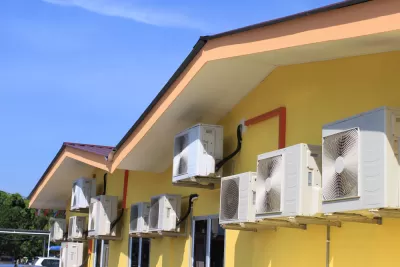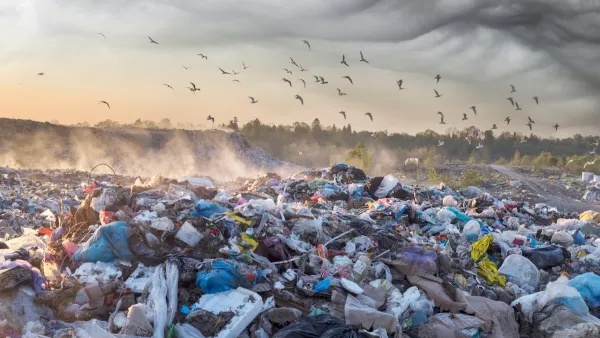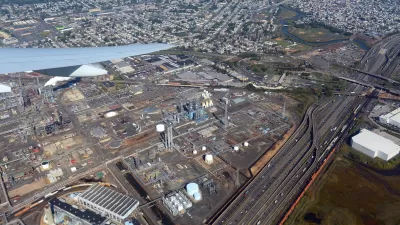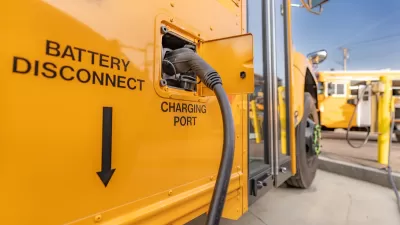The Guardian sounds the alarm about deadly heat exposure in poor communities around the world.

Cities around the world are increasingly reaching "killer temperatures," exposing record numbers of people to deadly heat for weeks at a time—and as urbanization increases, these risks will grow. But within cities, a feature in The Guardian shows, the impacts of intense heat and pollution clearly follow economic and racial lines.
In the US, immigrant workers are three times more likely to die from heat exposure than American citizens. In India, where 24 cities are expected to reach average summertime highs of at least 35C (95F) by 2050, it is the slum dwellers who are most vulnerable.
In general, the authors write, the people most likely to suffer illness or death due to extreme heat include those experiencing homelessness, prisoners, and "low-income populations living near traffic in poor housing with no air conditioning." People who live in areas with trees and green landscaping bear less risk than people in areas dominated by asphalt, brick, and concrete—and research has repeatedly shown that these conditions are largely determined by race and wealth. In the U.S., for example, Berkeley researchers found that "Black people were 52% more likely than white people to live in areas of unnatural 'heat risk-related land cover', while Asians were 32% more likely and Hispanics 21%."
FULL STORY: Heat: the next big inequality issue

Maui's Vacation Rental Debate Turns Ugly
Verbal attacks, misinformation campaigns and fistfights plague a high-stakes debate to convert thousands of vacation rentals into long-term housing.

Planetizen Federal Action Tracker
A weekly monitor of how Trump’s orders and actions are impacting planners and planning in America.

In Urban Planning, AI Prompting Could be the New Design Thinking
Creativity has long been key to great urban design. What if we see AI as our new creative partner?

King County Supportive Housing Program Offers Hope for Unhoused Residents
The county is taking a ‘Housing First’ approach that prioritizes getting people into housing, then offering wraparound supportive services.

Researchers Use AI to Get Clearer Picture of US Housing
Analysts are using artificial intelligence to supercharge their research by allowing them to comb through data faster. Though these AI tools can be error prone, they save time and housing researchers are optimistic about the future.

Making Shared Micromobility More Inclusive
Cities and shared mobility system operators can do more to include people with disabilities in planning and operations, per a new report.
Urban Design for Planners 1: Software Tools
This six-course series explores essential urban design concepts using open source software and equips planners with the tools they need to participate fully in the urban design process.
Planning for Universal Design
Learn the tools for implementing Universal Design in planning regulations.
planning NEXT
Appalachian Highlands Housing Partners
Mpact (founded as Rail~Volution)
City of Camden Redevelopment Agency
City of Astoria
City of Portland
City of Laramie





























